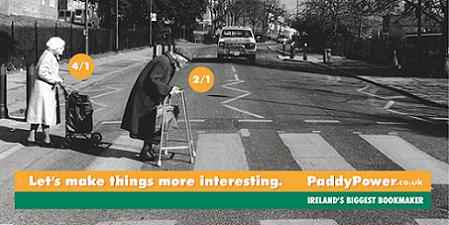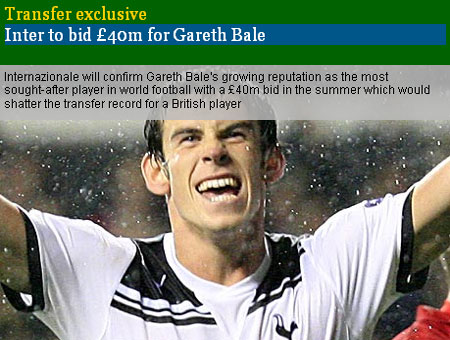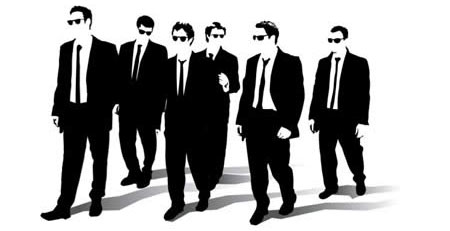Archive
Paddy Power’s on to a winner with charity shirt offer
The importance of having a brand attitude.
In categories where the offering is essentially the same, a brand’s positioning and the way it behaves become all the more important as means of differentiating them from the competition.
One such category is online gambling.
In essence, all of the companies offer punters the chance to stake some of their hard earned cash on all manner of sporting and cultural events. The market is extremely crowded and with sites like oddschecker.com enabling gamblers to find the best odds on a given bet, building loyalty can be difficult.
All of which means that acquiring new customers is essential and online bookmakers must stay front of mind in order to be considered. For brands with large budgets, oft-pursued routes include high profile sponsorship, advertisements and idents.
One brand with a smaller budget that manages to maintain a high profile is Paddy Power.
Their novelty bets, early payouts, refunds and risky communications have helped them carve a niche position amongst their rivals. Ranging from the Last Supper reworked as a casino table to a poster seemingly offering odds on which old lady would be hit by a car to sponsoring Tongan rugby player Epi Taion to change his name to Paddy Power by deed poll for the duration of the the 2007 World Cup, their activities are marked by a rebellious streak and a desire to generate as much free publicity as possible.
Their ability to respond quickly to current events helps keep them in the public eye, the poster at the top of the article greeted visitors to Ireland immediately after they’d been knocked out of the World Cup Play-off by France and Thierry Henry’s imfamous handball. The stategy of capitalising on current affairs is as strong as ever has as evidenced by a couple of recent viral activities.
The first was an opportunist game, turned around in under 24 hours, which invited users to ‘slap’ former SkySports pair Richard Keys and Andy Gray. Capitalising on the furore caused by their sexist comments the game was passed around by football fans and feminists alike.
The second is a great piece of activation.
Following the high profile deadline day transfers of Fernando Torres from Liverpool to Chelsea and Andy Carroll from Newcastle to Liverpool, the bookmaker offered distraught fans the chance to trade their old hero’s shirt for a £50 bet.
Better still, the unwanted shirts will then be given to Oxfam and sent to Africa.
Both activities will have been relatively cheap to implement, but their relevance both to current events and their target audience ensured that they were shared virally, thus saving a fortune in media costs.
Paddy Power’s long history of courting controversy and clearly defined brand personality distinguishes them from their myriad competitors and allows them to continue to engage their audience in such a distinctive style. Each stunt serves to raise their profile in the short term while further reinforcing their brand identity in the long term.

Their behaviour might not appeal to everyone and their stunts often cost them financially, however so long as no one used their £50 wager to bet on a draw after Arsenal went 4-0 up at St. James Park on Saturday, the Irish bookmaker will look back at a couple of weeks of good work courting publicity and living up to expectations.
Here Come The Boys!
Retailers and brands in dire need of some Sexual Equality
Thanks to an increasing number of ill-advised comments by Andy Gray and Richard Keys and declarations by MP Dominic Raab that men get a raw deal from ‘obnoxious feminist bigots’, sexual equality has suddenly become such a hot topic across the UK that the economy-ruining snow has melted away.
However, before we start preaching about how middle-aged sports presenters need to brush up with what is and isn’t an acceptable way to behave in 2011, we may want to look closely at our own industry and address the outdated way many brands and retailers still deal with the reality of the modern male shopper.
The conclusions of a recent study by Saatchi & Saatchi X suggest that just as women are fully entitled to get offside decisions as wrong as their male colleagues regularly do, so men are encroaching onto the traditionally female territory of ‘shopping’.
The study further implies that the failure to create retail experiences that appeal to men’s needs limits their engagement and that we need a much better understanding of the whole male purchase journey. Their Director of Strategy Simon Goodall notes,
“Men love doing things they can do well. They like opportunities to demonstrate mastery, which means they like to go into a shopping environment knowing the answers to questions they might want to ask.”
Goodall also believes that retailers ought to do more to help men find the information that they need to make decisions before they reach the check out.
This view supports the findings of OgilvyAction’s 2008 global study examining the decisions that shoppers made in store. Managed and analysed across EMEA by yours truly, this research suggested that across a range of categories, UK males were generally less likely than females to know which brand they are going to buy before entering the store.
Anything that helps with that decision making process should be considered.
Craig Inglis, Marketing Director at John Lewis states that men dwell less than women when shopping and are more rational and pragmatic in their shopping habits. Thus, male-oriented areas of the store should be clean and modernist with obvious signposting to help men navigate their way around the store.
However, brands and retailers can begin to engage men long before they reach the store. Goodall cites Best Buy’s ‘Twelpforce’, which offers advice on Twitter as an effective example of a retailer engaging with men and empowering them with the information they crave.
Twelpforce: A good example of engaging men
What’s more, cracking the male shopper is something that will only grow in importance.
A recent study of 2,400 men in the US by online giant Yahoo! revealed that 51% of respondents believed that they took a primary role in buying groceries.
Yahoo’s Director of Research and Insights, Lauren Weinberg, commented that while panellists may have inflated their involvement in purchase decisions, male customers’ perceptions of, and interest in, shopping are changing fast.
Regardless of whether some respondents exaggerated their role or not, the results indicate that gender boundaries are disappearing and modern households no longer see grocery shopping as a ‘womans job’.
Within the set that is ‘Male Shoppers’, we also need to understand the different mindsets men have across different categories, retail environments and lifestages. For example, the Yahoo! study found that fatherhood was influential with 60% of dads claiming to be the decision maker across a range of categories including pet care, clothing and packaged goods.
All of this means that brands need to think not only about who they target, but also how they represent men in their adverts.
John Badalament, a writer and founder of website ModernDads.net believes that “Men need to be something other than invisible or buffoons in advertising”.
Domino’s Pizza: Not such a good way to get men onside
Not only do such depictions alienate men, but a 2010 multinational study by EuroRSCG found that there was a “pining for chivalry” from women in the developed world and that “young people want to see demonstrations of male strength and responsibility.”
Chivas attempt to celebrate chivalry
Dove celebrate ‘being a man’
Even a seemingly harmless campaign like P&G’s “Behind Every Olympic Athlete is an Olympic Mom“ Winter Olympics ads resulted in grumbling from underappreciated dads, who still make up the vast majority of volunteer coaches for youth sports.
There is clearly still plenty to learn about engaging male shoppers effectively, though with the Yahoo! research finding that men are more brand-loyal and less focused on promotions than female shoppers the rewards for those who are successful are huge.
Either way, just as it has become clear that old dressing room banter is no longer appropriate in a TV studio, so it is equally apparent that failing to engage such an influential and lucrative proportion of shoppers is just as unacceptable.














